This wiki is no longer being updated as of December 10, 2025.
|
Pentaho/Contact Zone:Contact Verify Tutorial
← Data Quality Components for Pentaho
| Contact Verify Navigation | |||||||||
|---|---|---|---|---|---|---|---|---|---|
| Overview | |||||||||
| Tutorial | |||||||||
| |||||||||
| |||||||||
| Result Codes |
The following steps will guide you in the basic usage of Contact Verify.
Add Component
To add Contact Verification to your project, drag the component onto the Data Flow screen. This will snap the Contact Verification Component into your workflow space.
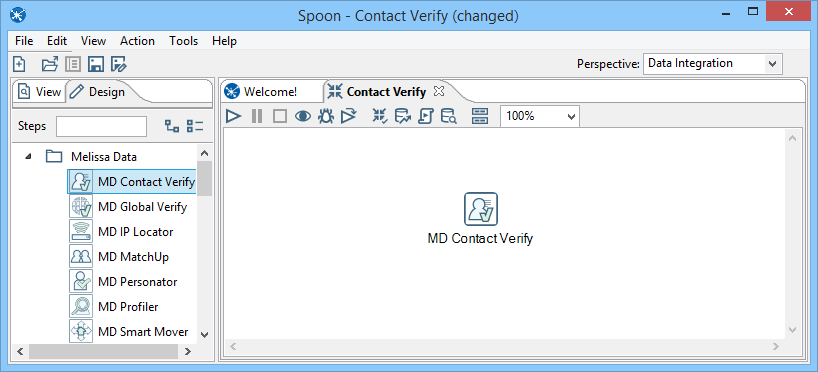
Connect Input
Select a data flow source to be your input data. Many formats can be used as Sources, including Excel files, flat files or Access Input data sources. Connect this data source to the Contact Verification Component by dragging the arrow from your data flow source to the Contact Verification Component.
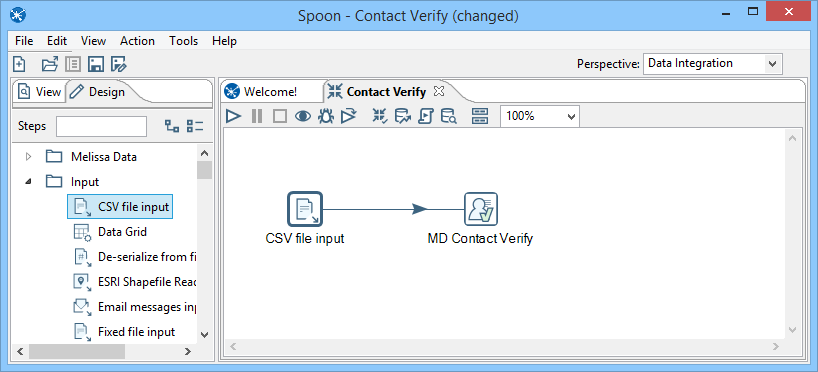
Configure Component
Double click the Contact Verification Component to bring up the interface.
Advanced Configuration
Click the Advanced Configuration button on the bottom of the window.
Set up the Contact Verify Advanced Configuration. See Advanced Configuration.
Name Tab
Map the input and output fields for the Name tab.
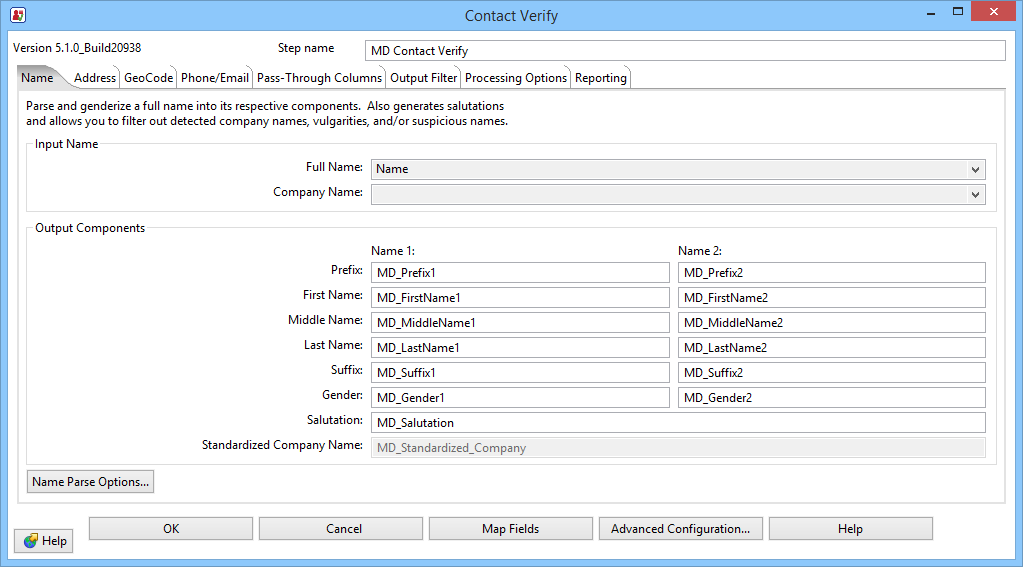
Address Tab
Select the existing field names using the dropdown box or create new ones. You can also set “Additional Input Columns” and “Additional Output Columns”
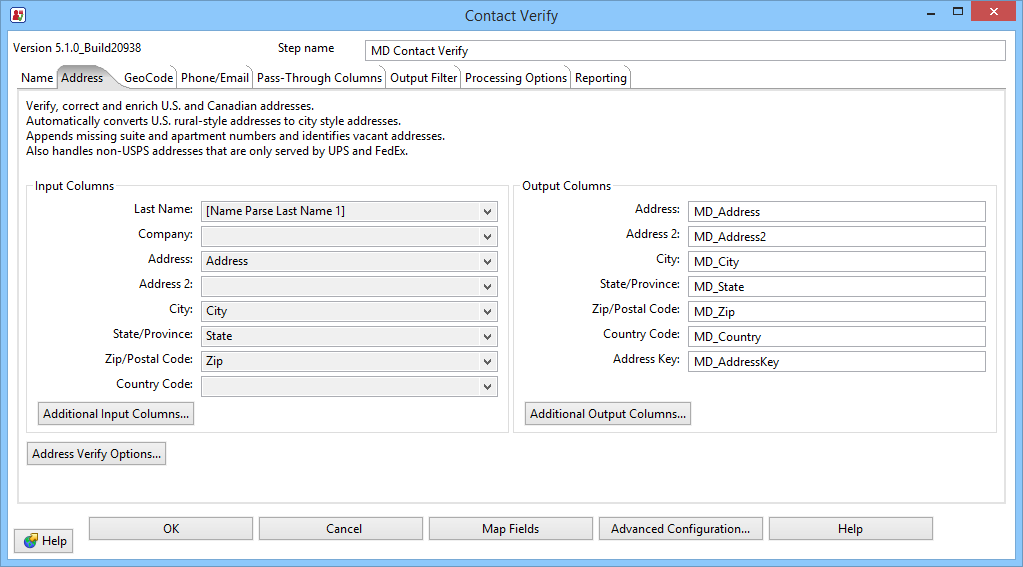
GeoCode Tab
Select the Source of Input Address radio button option. You can also set “Additional Output Columns”
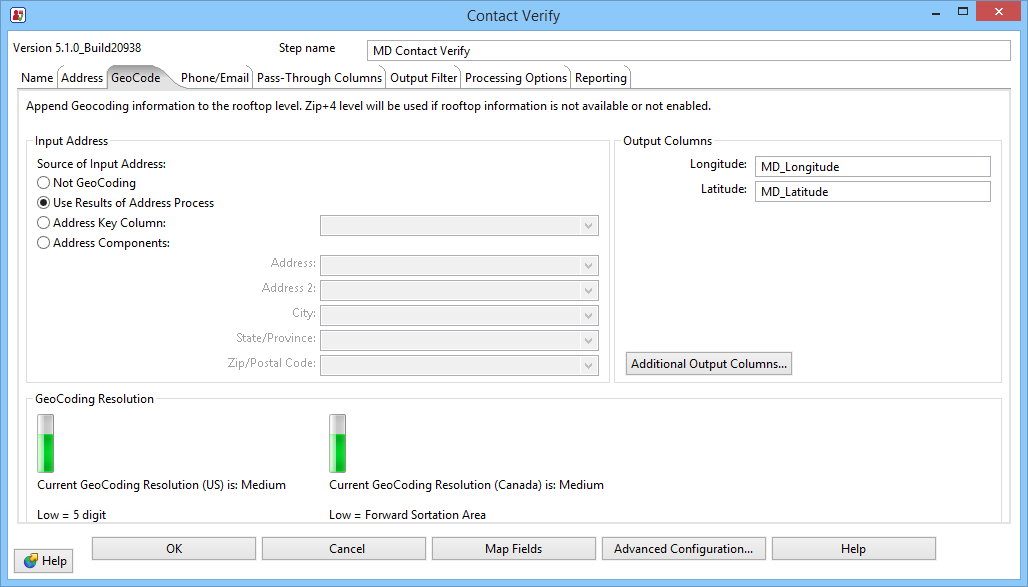
Phone/Email Tab
Select the existing field names using the dropdown box or create new ones. You can also set “Additional Input Columns” and “Additional Output Columns”
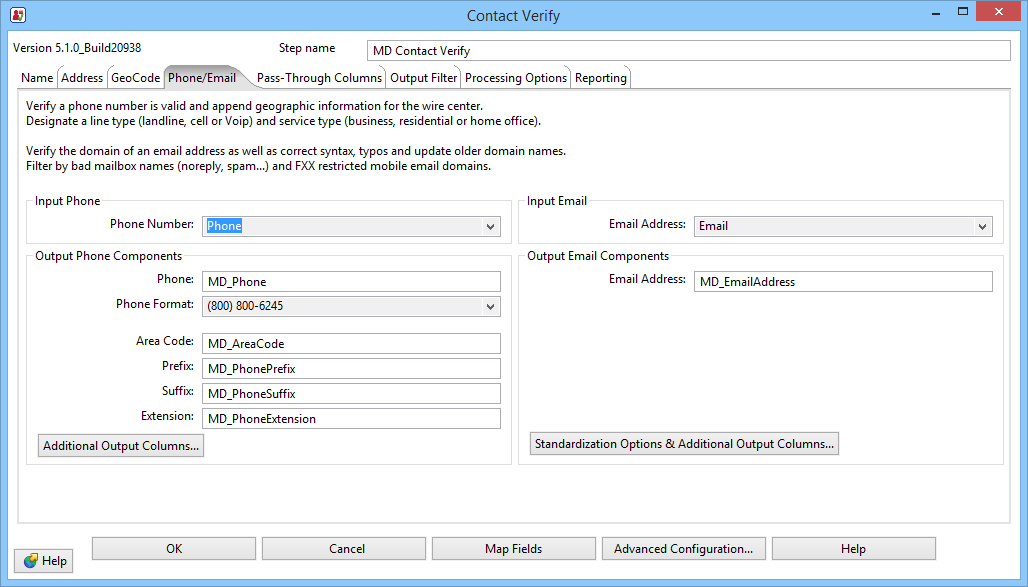
Pass-Through Columns Tab
Click on “get fields”. You may choose which columns to pass through to the data file and which columns to filter out.
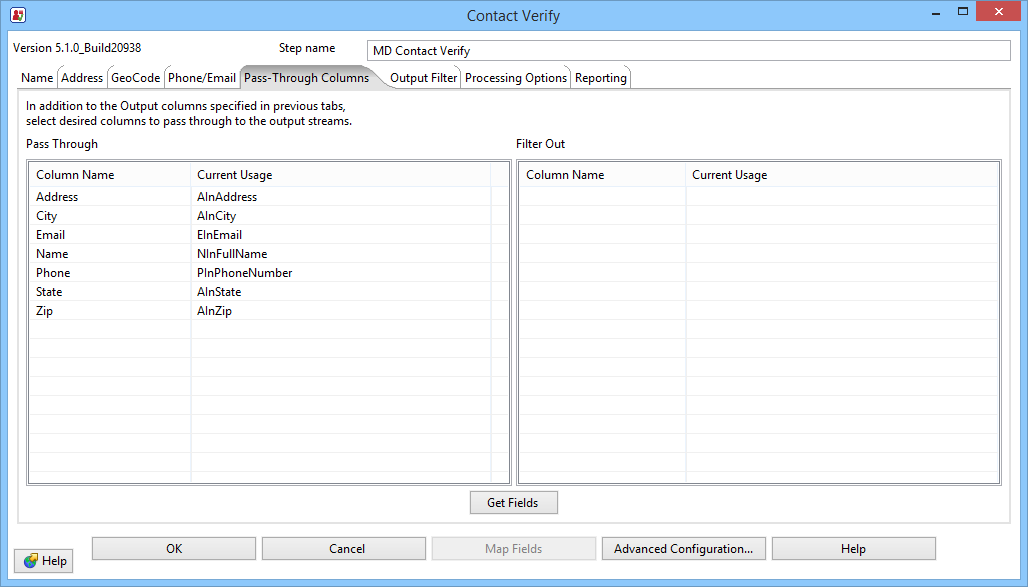
Output Filter Tab
You can specify the filter from the drop down or you can also create your own custom filter.
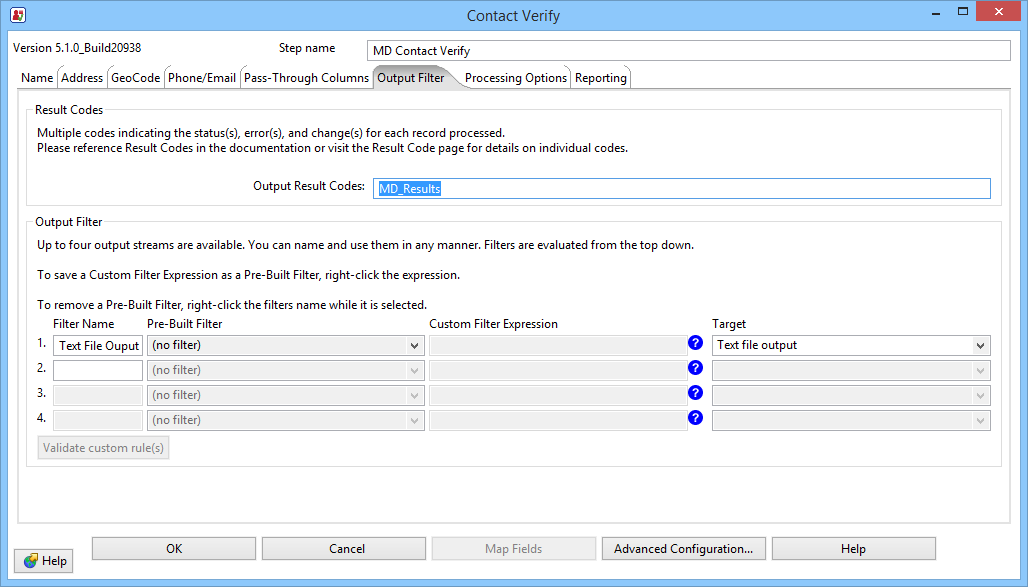
Processing Options Tab
Select which Processing Mode you will use. Be sure to have your selected Processing Mode set up in the Advanced Configuration.
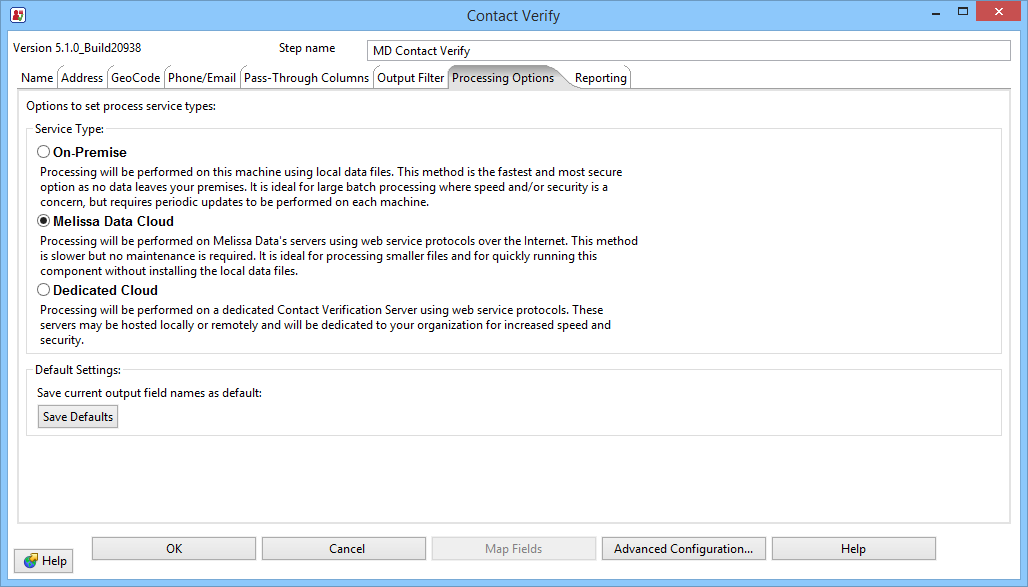
Reporting Tab
Choose what reporting options you want.
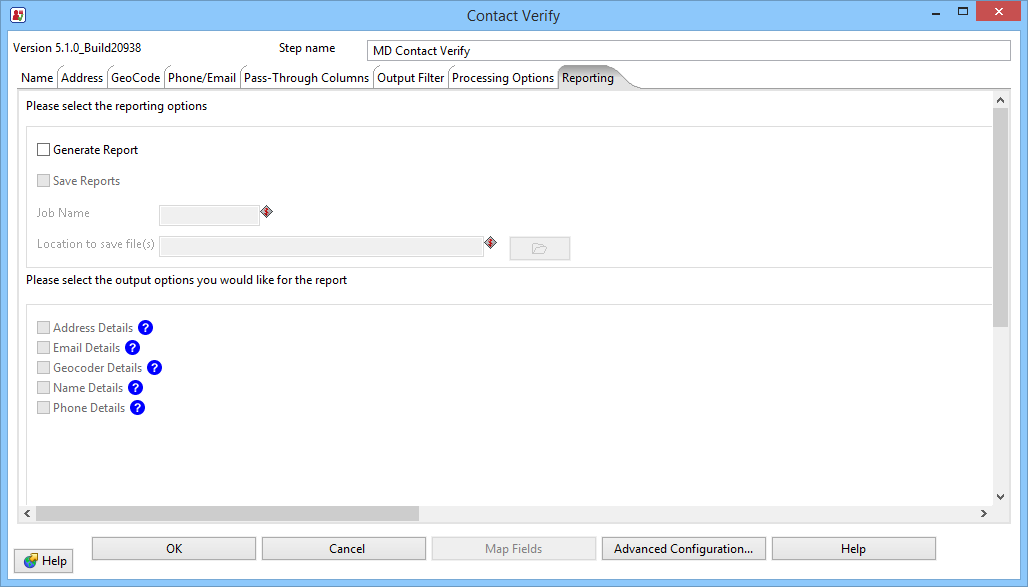
Connect Output
Add data destinations for the downstream output. Connect the respective output filter pin to the output destination.
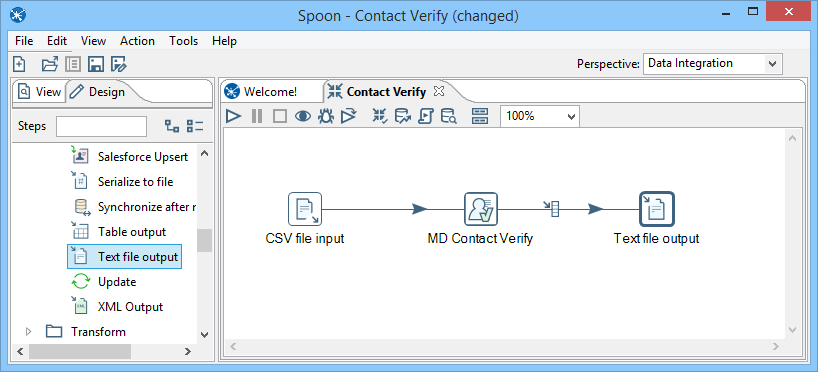
Save Settings
Click File and select Save as to save the project.
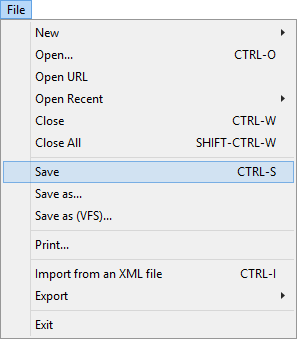
Run Project
Now, the project is ready to run. It is possible to observe in real time as records flow from your input source through the Contact Verification Component and pipe output source depending on the filtering options.